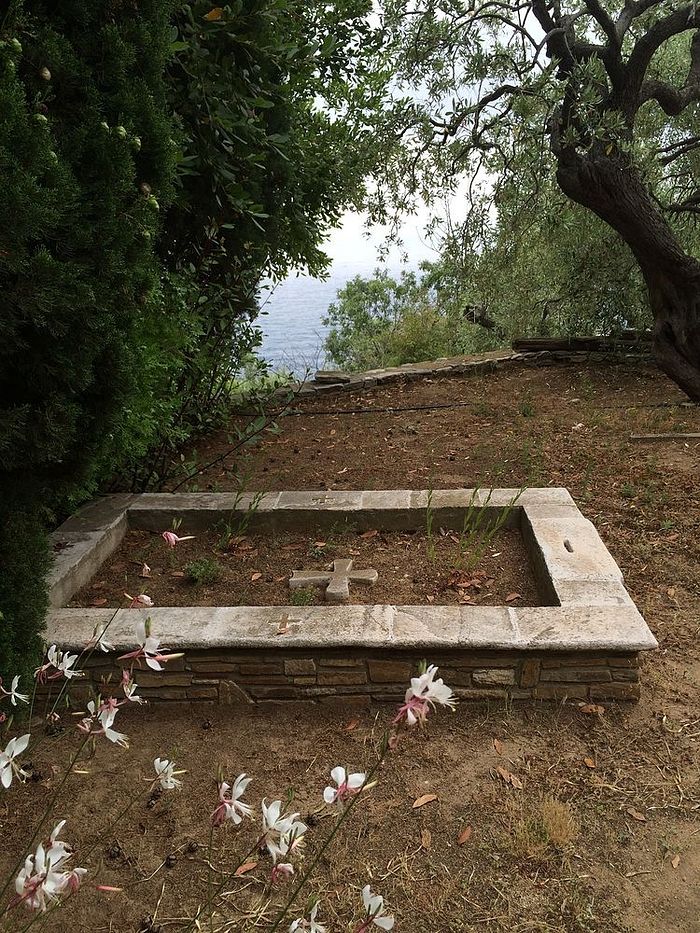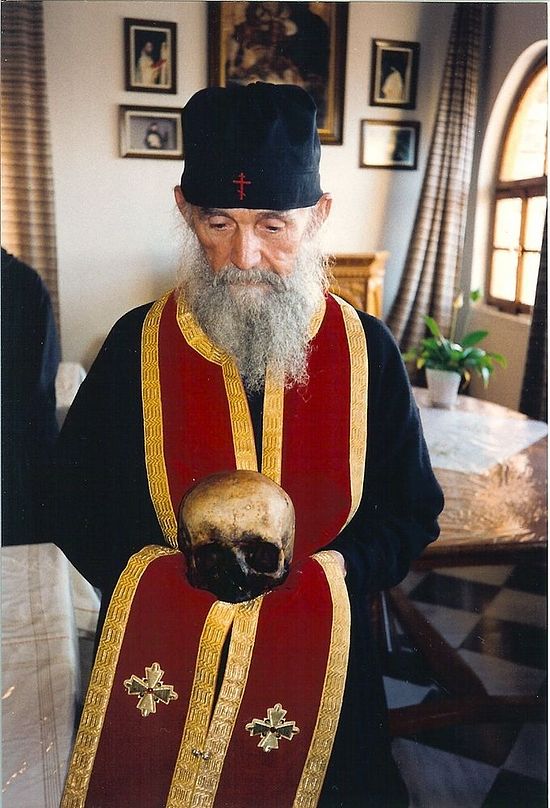It is from God that you are being tested, because He is training you for battle; He is drilling you, just like the soldiers who are trained through severe labors in their drills. There, first they learn the theory of warfare, and then at the sound of the trumpet in the real war, since they have already been trained, they rush into the battle with the inner assurance that they know how to fight, and they are ready to sacrifice themselves for their cause and ideology. You are also in a similar situation: since you have been called to become soldiers of Christ and to fight against His enemy, He trains you in order to ascertain your love towards Him: “Who is it that loves me, but he who keeps my commandments?”(cf. Jn 14:21 ).
Take courage, my children; remain loyal and dedicated to Him Who has loved you with perfect love. Before a battle begins, the generals boost the soldiers’ spirits by singing various battle hymns and relating various stories of heroic deeds to kindle their sense of self-sacrifice. This tactic gives them great strength and bravery in the battle about to be fought. Likewise, we too should contemplate, as the Saints did, the struggles of the martyrs and of the holy monks: how they lived ascetically, how they renounced the world and everyone, and how nothing prevented them from following the path that leads to Jesus. This contemplation will greatly strengthen your good disposition and intention, for there have been many who were unaware of the concealed traps, with the result that their souls succumbed to temptation and thus they fell from the hope of eternal life.
Contemplate the love of our Jesus; the love of Jesus will overpower every other natural love. The more we renounce, the more love of God we shall enjoy. Let us attend on high, where Jesus sits at the right hand of God. Let our eyes look on high, for the eternal and everlasting things are above, not below; for everything here is dust and ashes.
Reflect on the luxuriousness of heaven: the infinite wisdom of God is there; inconceivable beauty is there; the angelic melodies are there; the riches of divine love are there; the life free from pain is there; the tears and sighs will be taken away there; only joy, love, peace, an eternal Pascha, and an unending festival are there. “Oh, the depth of the riches and knowledge of God!” (cf. Rom. 11:33 ). “Eye has not seen, nor ear heard, nor have entered into the heart of man the things which God has prepared for those who love Him” (1 Cor. 2:9 ). Attend to the prayer; persevere in prayer, and it will put everything in order. Do not yield at all; remain firm in your holy goal.
Remain beside Jesus to live with spiritual happiness. There is no happiness anywhere except in Christ. So-called “happiness” outside of Christ is incorrectly called happiness, since it is obtained with reprehensible means and since it ends quickly and leads man to the eternal unhappiness.
Struggle, my children; the angels are weaving crowns with flowers of paradise. Our Christ regards the struggle as a martyrdom—what is more excellent than to be a martyr for Christ!
Elder Ephraim of Arizona






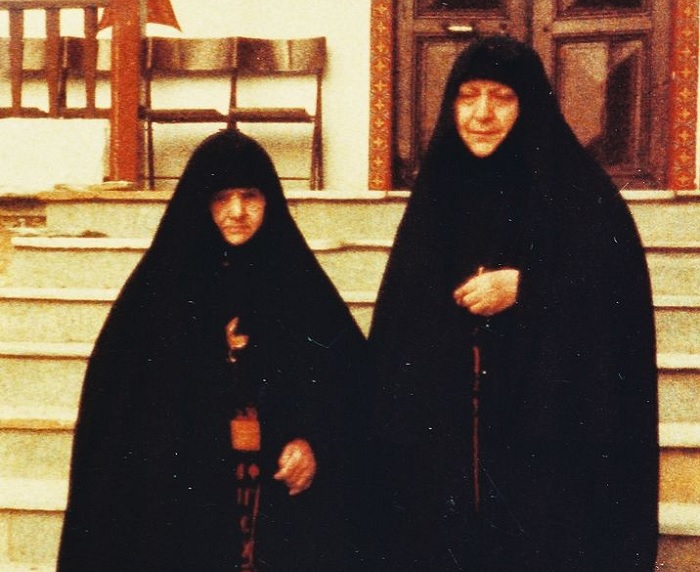 Gerontissas Theophano (left), and Macrina
Gerontissas Theophano (left), and Macrina 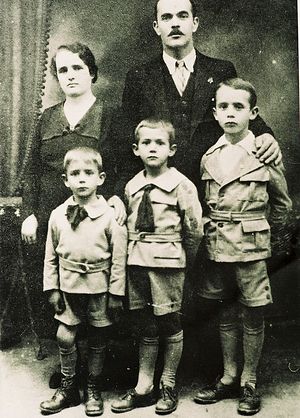
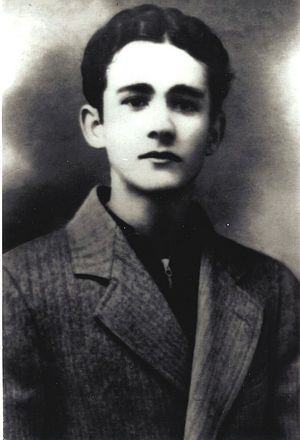 Elder Ephraim in youth
Elder Ephraim in youth 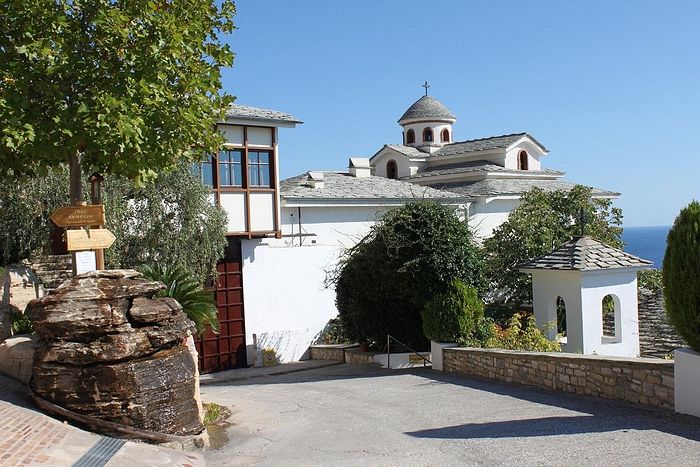 The Monastery of the Archangel Michael
The Monastery of the Archangel Michael 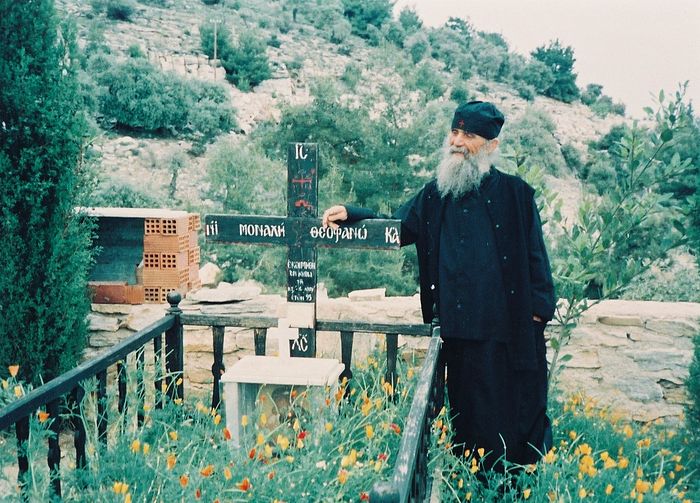 Elder Ephraim at the grave of his mother
Elder Ephraim at the grave of his mother 